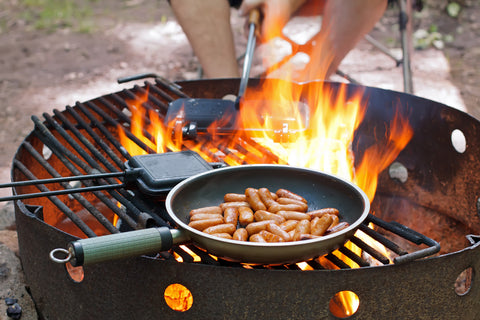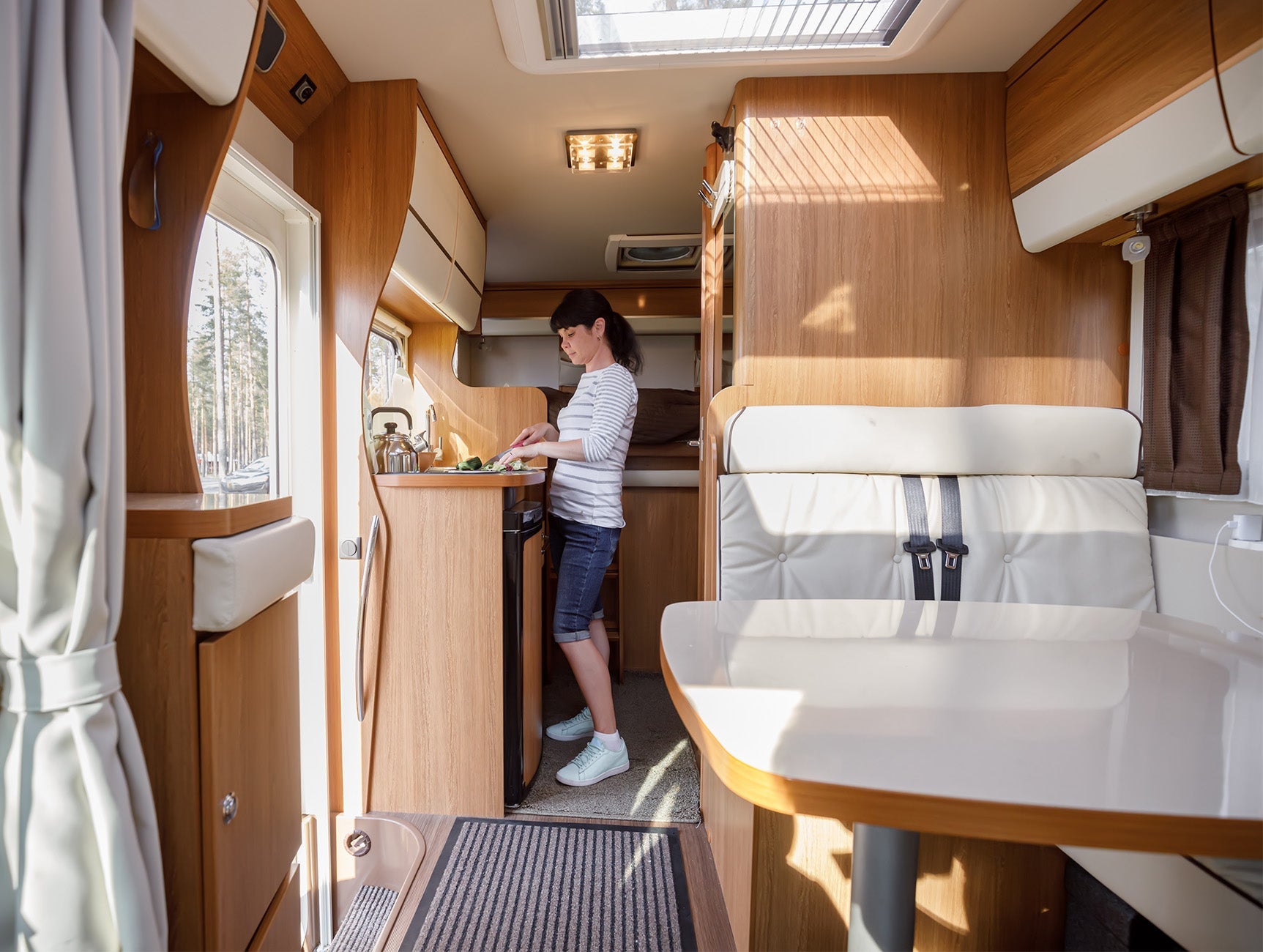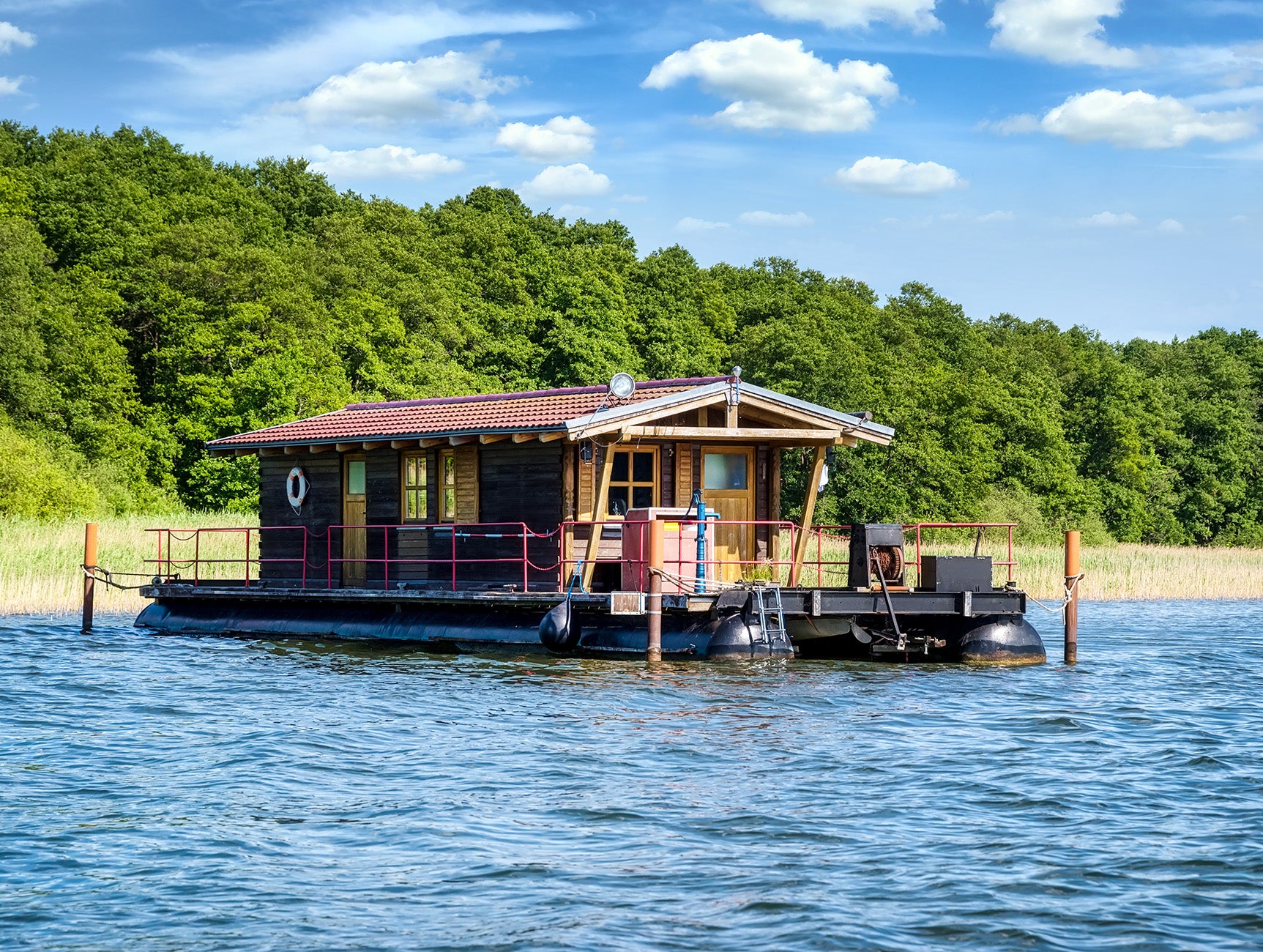January may have ended, but the return of warmer days still seems so far away. It’s the inevitable time of year when thoughts of summer start creeping into your mind—you just can’t wait to hit the road in your RV for another trip! When the winter blues get you down, that’s the perfect time to plan that getaway!
State Parks, National Parks, and private campgrounds have opened reservations for this summer, and sites are starting to fill up. Don’t worry though, there’s still plenty of time to plan and book a trip (or several) for the upcoming season! Not sure where to start or what pre-planning duties to consider? Here are a few tips to help you get on the road stress free this summer.
Know How Things Work (and That They’re Working Properly)
Even if you’ve had your RV or trailer for years, it’s still advised to refresh your memory on how all the systems work. Make sure you know how to connect and dump the black and grey water tanks—that’s something you don’t want to have re-learn on the fly. If your unit uses any battery power systems, double check that the batteries are charged and how to connect and disconnect them. Review the fuse box, including which fuses controls which functions, and understand how to change those in case one blows.
Plumbing can be a real problem spot after the unit sits for an extended period of time, especially through the winter. Run all your faucets and check for leaks around the pipes and any utility access areas on your unit. If you do find any leaks, explore our available plumbing service parts to get the replacements you need.
Be sure to check all the lighting in your unit to make sure everything is working correctly. Taking stock of your unit’s general ambiance might even help you decide where adding additional lighting could really brighten up your space. If a light needs to be replaced or you’re interested in upgrading, we’ve got you covered with a variety of RV lighting options.
Finally take a quick look at your RV Table Leg and make sure that it is still sturdy and secure. Make sure all your cabinet hardware in your RV is latching correctly. Test and inspect your RV assist handle by the front door to see that it is still secured in place.

Discover Where You Want to Explore
This may seem obvious, but there are so many things to consider when deciding where to travel in an RV. Do you want access to a beach? Would you prefer to get off the beaten path back in the woods? Looking to wake up to wide open spaces each morning? Perhaps you’d like a spot that offers a combination of settings.
Once you have a type of destination in mind, what parks offer that scenery? After researching and choosing the park you want to stay at, you still need to select your exact site. Do you prefer to be close to the restrooms? Do you have children and hope to be near a playground? Many state parks or campgrounds offer maps and pictures to help you get an idea of a site’s layout and amenities.
Maybe most importantly, pay attention to the hookups that are available—not every site is guaranteed to offer water and electricity hookups. If you need access to one or both of those, keep that in mind when searching for a site.

Map Out Your Driving Plan
Here’s another obvious tip: make sure you take time to consider how far you’ll be driving and which route makes sense for your needs. If you can’t make the trip in one day, choose a place you can safely park your RV for a night before continuing on the next day. Some large grocery and hardware store chains allow RVers to stay a night in their parking lot for free. Though that’s the most cost-effective strategy, these lots don’t offer hookups for electricity or water, so plan accordingly.
If you can make the drive in a day, take a look at your directions online in advance to make sure you can easily navigate the suggested route towing a trailer or driving a motorhome. If anyone is sharing driving duties, make sure they’re comfortable maneuvering the trailer or motorhome on the road. Take a practice ride with first-time drivers on familiar streets to acclimate them. Lastly, try to get to your site before dark. Not only will It make setting up a lot easier, but hopefully it’ll leave some time to enjoy a campfire or other activity, too!
Make a Packing Checklist
We’ve all gone on vacation thinking we have everything we need only to realize something essential has been forgotten. It’s always a pain to make an extra trip to the store or go without an important item. Here are a few important things to double check before you hit the road.
- Setup gear: water hoses, extension cords, leveling blocks, wheel blocks, etc. Anything your unit needs to get connected and set up in the site.
- Kitchenware: make sure you have enough plates, cups, and utensils for everyone on your trip. If you’re doing dishes, pack a wash tub or other dishwashing station.
- Campsite furniture: camp chairs, a folding table for food prep or food service, a cooler for additional cold beverages.
- RV toilet paper: if you’re new to RVing, you might not know that you can’t use regular household toilet paper in an RV toilet. Pack RV toilet paper to avoid a clogged waste water tank.
Plan Your Meals
With limited fridge and pantry space in an RV, the more you plan your food in advance, the more efficient you can be on the road. Make it into an adventure by cooking how you normally wouldn’t—over an open fire! You can go for classic hot dogs roasted over the fire, or an aluminum-foil-wrapped meal placed directly on the hot coals.
If you want to try something a little more advanced, you can even bring a cast iron Dutch oven or an over the fire grill rack. For help creating delicious meals that are easy to make in an RV, you can find plenty of tips and recipe ideas with a quick online search.

Plan a Few Activities in Advance
Once you have a site picked out, you can start thinking about activities at the park or in the area you’d like to do. Here are a few ideas to get you started: rent kayaks or a canoe and take a day trip paddling down the river or along the lakeshore. If you’re looking for a more relaxing water activity, rent tubes for a lazy river float. Going to the beach? Make sure to pack a beach chair and bag to carry your towel, sunscreen, toys, and snacks—and don’t forget the cooler! Explore nature—find a trail for a hike or bike ride on a beautiful summer afternoon.

If you have kids, check if the park you’re staying at has a nature center or Junior Ranger Program. State or National Parks often host these types of programs, and they offer various activities for kids like scavenger hunts and fun presentations to learn about wildlife in the area. Another option is to simply do nothing at all: relax and nap in your hammock, kick back and enjoy a good book, or play your favorite card or board games. Taking time to take it easy can be a beneficial and fun way to spend a camping trip.
We hope these ideas get your brain going on what and how to plan for your summer RV trips this year. Just remember to be prepared, but stay flexible. Things may not always go exactly to plan, but that’s okay! The most important part of the trip is that you’re taking the RV out for a fun and relaxing time with friends and family. Make the trip into whatever you want it to be!



